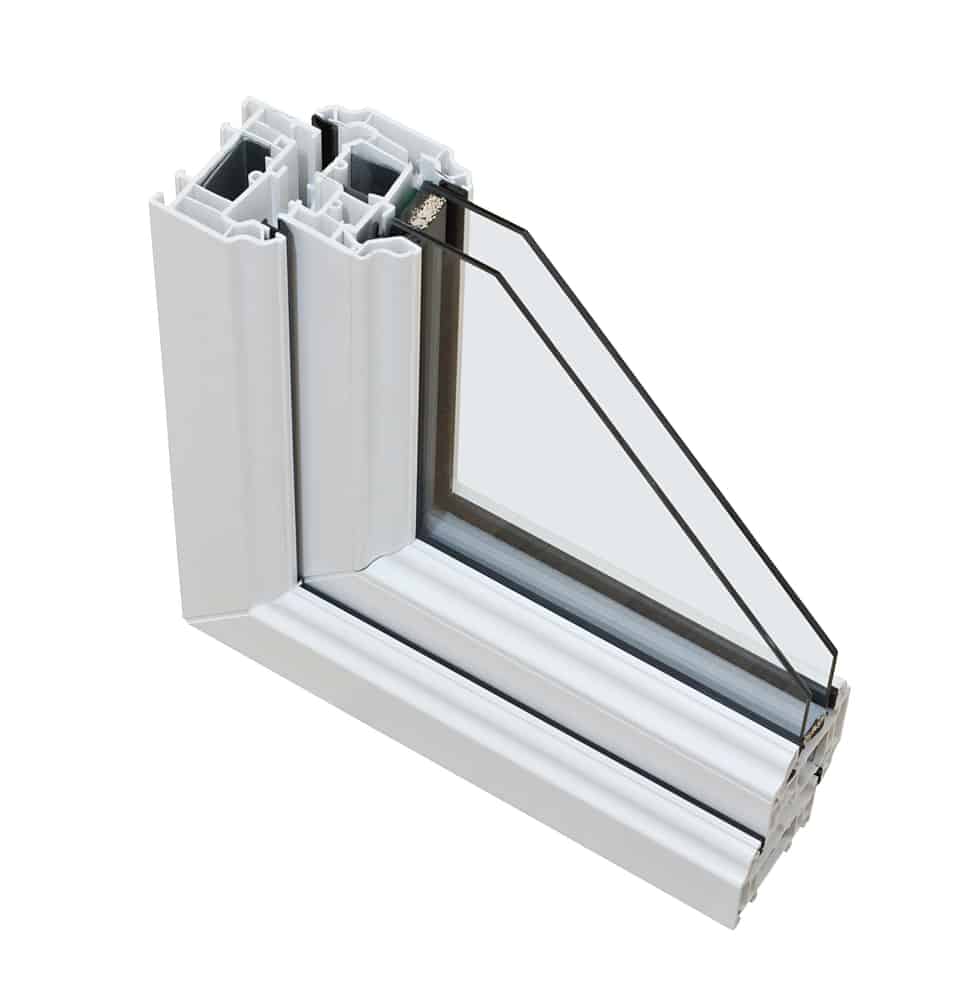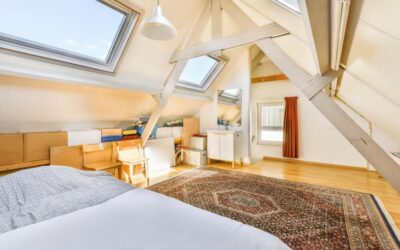Why are some apartments noisier than others? Why does it seem like I hear everything next door?
The Basics:
Sound in buildings is basically transmitted in two ways, airborne transmission (in an apartment, this often arises from conversation, television or radio) or impact transmission (which source is most often walking or chairs moving). Both airborne and impact transmission create vibrations in nearby materials that result in various levels of sound being transmitted. The degree to which a wall or floor transmits sound (or controls sound) is measured by sound transmission class (STC rating). Generally, the higher the rating, the less sound is transmitted. At the lower end of the index, an STC rating of 30-33, loud speech is audible to not intelligible. An STC rating of 40 is considered the threshold for privacy. STC ratings of 50 will reduce the sounds from musical instruments or stereos to a level where they can only be faintly heard. Sound ratings above STC 60 are considered exceptional.
So what buildings have good sound control?
Sound control in apartment buildings is one of those features that is often overlooked, especially by first time renters, yet one of the most important features in making a positive apartment living experience, as it has a major impact on the health and happiness of you (the resident).
What questions should be asked as part of your research and decision making before signing a lease?
1. What type of material are the floors?
Many people think all floors are created equally; they are not. The type of floor (structure and finish material) matters for not only aesthetics, but for other reasons including of course sound transmission.
In general, in terms of floor structure, concrete floors are generally the best for a quiet apartment (assuming you have people above you) as opposed to a wood floor system (plywood and joist). This statement should be considered a rule of thumb, as concrete floors can be more susceptible to impact noises, and wood floor systems can be built to extremely high sound STC ratings. Floor coverings play a major role in the transmission of impact noises. Ceramic tile is generally the loudest, while carpet which is generally the quietest.
Ask what type of flooring you will have, and find out whether noise from above is a common complaint from residents. Ask about the STC rating of the floor. A well-trained rental agent should be able to provide you more information beyond, it’s good.
2. Are the walls soundly constructed?
Walls, like floors, should be well constructed for many reasons, especially for noise control. The way the walls are constructed has a direct correlation with how much sound gets transmitted through them. Not only does the thickness of the wall matter, but just as important are the materials used in the wall, assembly of the wall, and insulation between the walls. It’s expensive for builders to add sound control to walls, when you have a weak sound control wall, you’ll generally know it (and suffer from it). The old adage of the “walls are paper thin” certainly was probably based on customer experience. Generally these “paper thin” walls have STC ratings of 30 or less. Remember an STC rating of 40 is considered the threshold for privacy. This should be high on your list for what is important when you select an apartment.
As with floors, ask the landlord if they know how the walls are constructed? Also ask if there have been frequent complaints about noise between units? Again, research if people frequently complain about noise levels from their neighbor(s).
3. What type of windows are there?
Insulated windows reduce sound from outside or the street. There are a lot of technical nuances with windows and sound control (i.e. type of glass, insulation, etc.) but it’s a good start to find out whether the windows in your apartment are single pane, dual pane (2 layers of glass) or triple pane (3 layers of glass). All things being equal, triple pane windows will provide the most protection against noise control.

4. Are There Quiet Hours?
Leases or rule addendums sometimes address noise disturbances with a clause that specifies quiet time. It’s the do-not-disturb rules spelled out in black and white.

The time to talk softly and snore lightly varies depending on the apartment. It might even change from weekday to weekend. However, it often begins around 10 p.m. and ends around 8 a.m. During this time frame, residents are prohibited from doing laundry or other such activities.
If there’s nothing to specify quiet hours in the lease, you still may have some recourse if the county or town has noise ordinances.
Either way, it’s a good question to ask.
5. What Surrounds the Apartment?
Consider where your future unit will be located.
If you are on a top floor apartment, you won’t have to worry about noise from the neighbors living above you (you’ll just have to be considerate of those on the floor below. Walk softly and wear your rubber-soled shoes or slippers.)
If you are at a corner or end unit, you might only have one neighbor.
Do you face the street in a major city (it might get louder with sirens or at night)?
If you face the street, is your bedroom window closest to the street or is it set back further in the apartment?
Is there a nearby train track or fire station which could make loud noises throughout the night?

7. How Noisy Is It?
I know, it’s obvious, and we are being redundant, but if you want to know how noisy it is, ask someone.

You can start with the landlord.
Discuss the noise issues and find out the time of day or week when there’s the most commotion. Consider visiting the apartment community during that time if it’s open for visiting hours.
7. Can You Escape?
As a last resort, find out if there’s a place to escape from your apartment and the noises that surround it at least in the daytime. Ask if the apartment complex includes a resident lounge or clubhouse that’s designed as a quiet spot for chilling out. You may discover it’s equipped with private nooks and crannies with desks for working or studying.
So, when you’re looking for an apartment, don’t forget the importance of being able to find some peace and quiet space when you need it. Ask questions about the noise levels, visit the apartment at different times of day, inquire about quiet-hours, learn about the types of walls/windows/flooring, and the surrounding area. Finally, find out if there’s an opportunity to escape to a resident lounge that may be quieter than your apartment.
Keep In Mind: Even the best noise-controlled buildings, still can’t reduce certain noise or even extremely low frequency noises such as those from heavy equipment operation or an extremely loud neighbor blasting music on the wall next to you, so it may be a good idea to be prepared for a little noise, and if it’s quiet, you’ll be surprised. There’s a lot that goes into noise control, including one’s personal tolerance for noise, but hopefully this article gives you a good start to finding a quiet apartment. Happy Apartment Hunting!





